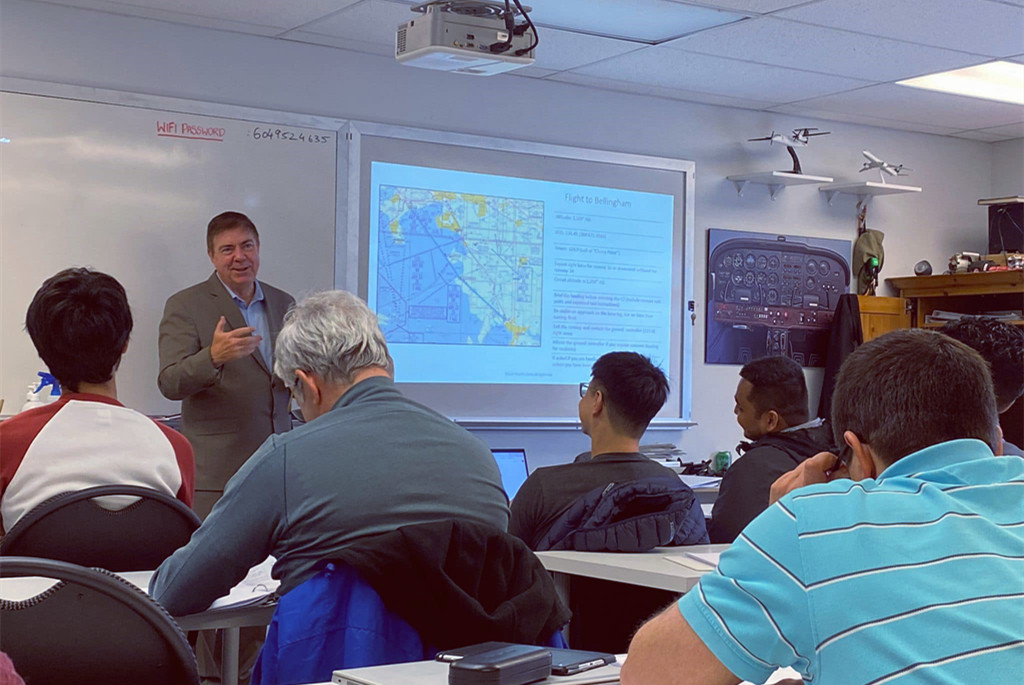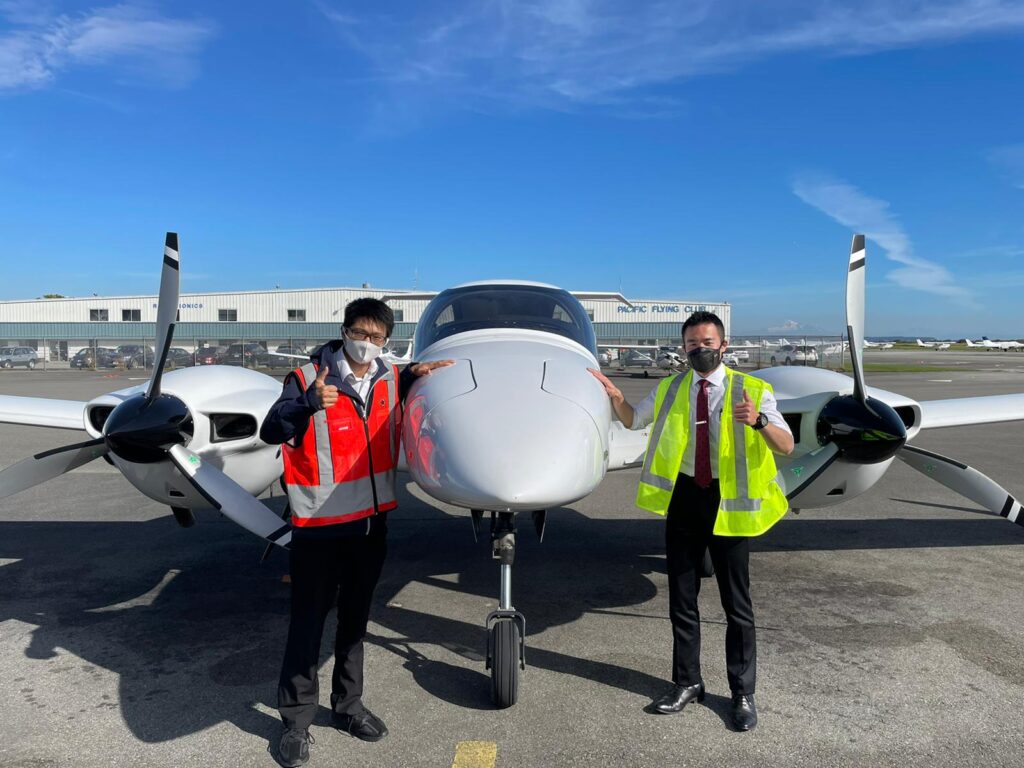Look for friendly personnel. Meet the instructors. If they seem happy, it’s probably because they are flying for an employer they enjoy, flying well-maintained aircraft. If they look as though they would rather be somewhere else, it could be a warning flag.

Meet the CFI (Chief Flight Instructor). Speak with them about your options in flight training. Look at the aircraft. Look for signs of good maintenance. If all the airplanes are missing radios, or show evidence of misuse, it could be a bad sign. The best schools will have their own maintenance operation, as it shows that they are a more complete operation and it allows them to fix planes more quickly and cost effectively. Some smaller schools are likely to put off maintenance issues as long as they can to offset costs.
When enquiring about costs, make sure you compare apples with apples. You will hear prices per hour solo, dual, instructor rates, etc. Schools will usually give a “minimum cost estimate” based on Transport Canada minimum required hours. You should bear in mind that the minimum is rarely achieved and plan to spend up to $3000 over the minimum estimate for a Private Pilot License.
The main factor in keeping costs down will be your dedication and the frequency that you fly. The saying goes, “Beware of Bargains in parachutes, life preservers, and flight training”. A $5/ hour savings you may get on hourly plane rentals at a discount school in theory may save you around $300 over the course of your private license, but if it takes you an extra 10 hours to get the license, these savings have been offset by the cost of the extra training time.
Quality training, such as you will receive at Professional Flight Centre, can make a huge difference on the final dollars spent. Be careful of schools that demand up front payment of large sums of money. Most good schools will allow you to pay as you go.
Look for an environment that is conducive to making contacts. Aviation is a very small community and the connections you make while training will be around for your entire career. Usually people connect with a flying buddy who is at the same level of training. Lifelong friendships have often been made at the airport.

Find out if there is a respectable IFR department, so you don’t have to switch schools when doing the Instrument Rating. The Professional Flight Centre grew out of Professional IFR, a name that is synonymous with setting the Multi-IFR training standard for Canada. Our IFR Division specializes in advanced flight training and concentrates on the Instrument Rating, Multi-Engine Rating, Single-Engine Instrument Rating, IFR Renewal and the Airline Transport Pilot License.
There is an excellent article about choosing a flight school at Transport Canada’s website: https://tc.canada.ca/en/aviation/licensing-pilots-personnel/getting-trained-pilot-crew-member/how-select-flying-school
Frequently Asked Questions
- How much will it cost to become a pilot?
- How long will it take to get my licence?
- Do I need to pay full cost up front?
- Does school provide student housing?
- When can I start flight training?
- What’s the English requirement?
- Does school offer Introductory Flight?
- Does school offer job opportunities?
- Can I apply for citizenship after training?
